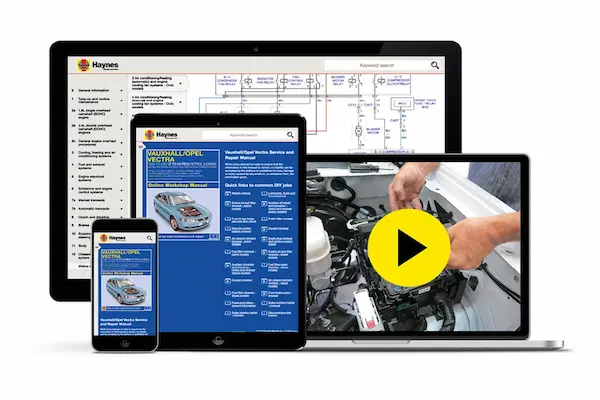Full Mechanics Manual No Cost!
Want to learn mechanics without spending money?
Advertising

Best Mechanics Apps for Free
Top 5 and how to download
You can access mechanics manuals, free courses, and dedicated apps that teach both theory and hands-on skills without cost.
These tools cover everything from engine repair to electrical systems, making them suitable whether you’re a beginner or looking to deepen your expertise.
Many apps and online platforms offer structured tutorials, videos, and downloadable guides to keep your learning organized and practical.
By using these resources consistently, you can build a solid foundation that supports a future career in automotive mechanics or related fields.
This approach allows you to upgrade your skills on your schedule and at your own pace.

What do You Need to Know to Get Started as a Mechanic?
To begin your journey as a mechanic, you need a foundation in both practical skills and technical knowledge. Basic understanding of automotive systems like engines, brakes, and transmissions is essential.
You’ll also need good problem-solving abilities. Mechanics diagnose issues before repairs, so critical thinking is a daily part of the job. Being comfortable with tools and working by hand is important too.
Education-wise, most employers require at least a high school diploma or equivalent. Courses in math, science, and automotive technology can prepare you well. Many start through trade schools or community college programs.
Certification helps you stand out. The ASE (Automotive Service Excellence) certification is widely recognized and often necessary. It validates your skills in specific areas such as engine repair or electrical systems.
Here are some skills and knowledge areas you’ll need:
- Engine basics: Understand how cars function
- Electrical systems: Modern cars rely on electronics
- Diagnostics: Identifying problems efficiently
- Safety protocols: Essential for working safely
- Customer service: You’ll often explain repairs to clients
Starting with hands-on training, whether through apprenticeships or vocational programs, is highly effective. These experiences allow you to apply what you learn in real situations, accelerating your growth as a mechanic.
Essentials of the Full Mechanics Manual
You will find detailed explanations of mechanical principles, step-by-step guides, and user-friendly access tools. This combination ensures you understand core concepts, apply knowledge practically, and navigate resources efficiently.
Core Concepts and Structure
The manual covers the fundamental principles of automotive mechanics, including engine systems, electrical circuits, transmissions, brakes, and suspension. It breaks down complex ideas into clear sections, often supported by diagrams and illustrations.
Topics are organized logically, usually starting with basic theory and advancing to specialized areas like diagnostics and repair techniques. This structure helps you build knowledge progressively, making it easier to follow troubleshooting processes or perform repairs.
You can expect explanations of both mechanical and electronic components, highlighting their interaction within modern vehicles. The manual emphasizes safety standards and best practices throughout.
Practical Applications
Every concept is paired with hands-on procedures such as routine maintenance, component replacement, and troubleshooting steps. This practical focus enables you to repair or maintain various vehicle models confidently.
The manual typically includes wiring diagrams, torque specifications, and diagnostic codes. These details help you identify problems quickly and use the right tools and parts.
You will also find advice on preventive care to extend vehicle life and avoid costly repairs. Step-by-step repair guides often include tips from experienced mechanics, enhancing your DIY capabilities.
User Accessibility
The manual is designed for different skill levels, from beginners to professionals. You can access it in various formats like downloadable PDFs, mobile apps, or online platforms.
Search functions and indexed content allow quick navigation to specific topics. Many resources also offer videos or interactive content to improve learning.
Free options often provide extensive information without subscriptions, while some platforms may require sign-up for enhanced features. Accessibility to detailed diagrams, updates, and technical bulletins keeps your knowledge current.
Best Free Apps for Mechanics
You can access a wide range of free apps that offer detailed tutorials, diagnostic tools, and comprehensive vehicle manuals. These apps cater to beginners and experienced users, providing interactive content and practical exercises to help you build real-world skills efficiently.
Top-Rated Mobile Applications
Some apps stand out for their extensive manual libraries and user-friendly design. For example, Auto Mechanic Mate offers a vast collection of car manuals covering numerous makes and models, making it easy to find specific instructions for your vehicle.
RepairPal and CarScanner are also popular choices, providing diagnostic features and step-by-step repair guides. These apps combine technical details with clear visuals, helping you troubleshoot common automotive issues without costly visits to the shop.
User ratings often highlight apps with regular updates and comprehensive content, so choose ones that include both basic and advanced material to suit your learning pace.
Interactive Tools and Calculators
Many free mechanic apps include interactive tools that go beyond static content. You can access simulated diagnostic tests, parts calculators, and maintenance trackers that help you plan repairs and understand how systems work.
Apps featuring quizzes, 3D diagrams, and virtual repair exercises help reinforce learning through practice. Some even allow you to input vehicle data to receive tailored advice or estimated repair costs.
Look for apps that blend theory with hands-on elements, as this approach improves retention and skills application, especially when you’re working on actual vehicles.
App Compatibility and Updates
Check the compatibility of apps with your device’s operating system. Most top free apps are available on both Android and iOS, but features or updates may vary between platforms.
Developers frequently release updates to add content, fix bugs, and improve usability. Keeping your apps current ensures you have access to the latest repair techniques and vehicle information.
Before downloading, review app permissions and user feedback to confirm reliability and avoid outdated or unsupported software. Consistent updates are a key indicator of quality maintenance and trustworthy data.
Comprehensive Free Mechanics Courses
You can access a range of free resources to learn automotive mechanics, from apps to detailed course programs. These options help you build practical skills, follow organized lesson plans, and earn recognized certifications.
Online Learning Platforms
Several free online platforms offer mechanics courses covering topics like engine repair, transmission systems, and vehicle maintenance. Websites such as Alison and SC Training provide interactive lessons allowing you to study at your own pace. Many also include video tutorials, downloadable materials, and quizzes to reinforce learning.
Mobile apps designed for mechanic training bring flexibility, letting you practice theory and review systems wherever you go. These apps typically cater to all skill levels, making it easier to progress from basic concepts to advanced auto diagnostics. Using both web platforms and apps can give you a well-rounded understanding of automotive repair.
Structured Course Curricula
Free mechanic courses often follow a clear curriculum starting with foundational topics such as automotive industry safety and common tools. You’ll find modules on major systems like brakes, engines, and electric vehicle technology laid out in logical sequences.
Courses usually balance theory with practice, with lessons on when and how to perform maintenance or diagnostics. Some platforms break content into beginner, intermediate, and advanced levels, letting you build expertise step-by-step. This structured approach helps you gain real-world skills applicable in various mechanic roles.
Certifications and Accreditations
Many free online automotive courses offer certificates upon completion, proving your skills and dedication. Platforms like DENSO Technic and Alison provide recognized certificates at no cost, which can strengthen your resume or help with job applications.
These certificates often come with detailed transcripts showing the competencies you’ve mastered. While free certificates might not replace industry licenses, they demonstrate a solid knowledge base to employers. Obtaining these credentials can open doors in automotive workshops, dealerships, or personal repair projects.
Launching a Career in Mechanics
Starting a career in mechanics means developing a solid mix of technical skills, finding available job options, and building a network for advancement. Each of these areas plays a key role in shaping your professional path and success.
Skills Required in the Industry
You need a strong foundation in mechanical concepts, diagnostic techniques, and repair methods. Skills in reading technical manuals, using diagnostic tools, and troubleshooting systems are essential.
Hands-on experience with engines, electrical systems, and computerized controls increases your value. Attention to detail and problem-solving abilities are critical for accurate repairs and maintaining safety standards.
Soft skills like communication and teamwork also matter because you often collaborate with customers and other technicians. Continuous learning is key, as technology in vehicles and machinery evolves rapidly.
Job Opportunities and Pathways
You can enter the field through apprenticeships, technical schools, or self-study using apps and online courses. Entry-level positions include mechanic assistant or service technician.
Common roles cover automotive repair, diesel engine maintenance, industrial machinery servicing, and HVAC systems. Specialized fields, like diesel or heavy machinery mechanics, often have higher demand.
Career changes are possible by leveraging transferable skills into related roles such as parts sales, technical training, or supervisory positions. Certifications and formal qualifications expand your options and earning potential.
Career Advancement and Networking
Building your career requires advancing your skills through certifications and further training. Industry-recognized credentials, like ASE certification, validate your expertise and improve job prospects.
Networking with professionals in your field can open doors to job leads and mentorship opportunities. Joining trade associations, attending workshops, and participating in online communities strengthen your connections.
Developing good relationships with employers and customers helps you secure long-term positions and recommendations. Staying current with technology trends keeps you competitive in a changing market.
How to Practically Start Making Money
Begin by assessing your current skills and interests related to mechanics. This helps you target the most suitable opportunities, whether online or offline.
You can start offering basic repair services to friends, family, or local customers. Word of mouth often leads to repeat business and new clients.
Use free apps designed for side hustles or small tasks to generate quick income. Some apps pay for completing surveys, delivering items, or performing simple jobs. This can supplement your income without upfront costs.
Explore free online courses that enhance your mechanical knowledge. These courses often provide certification, which builds credibility and helps you attract more clients.
Create a simple portfolio or social media page to showcase your work. Sharing before-and-after images or client testimonials increases your visibility and trustworthiness.
Consider combining online and offline strategies. For example, start a blog or YouTube channel sharing mechanic tips. Over time, this can create passive income through ads or sponsorships.
Key practical steps to start:
- Identify skills: List your mechanic-related abilities
- Use side hustle apps: Join apps like survey or task platforms
- Offer local services: Begin with friends and family
- Take free courses: Improve your knowledge online
- Build an online presence: Create social media or blog
Taking small, consistent actions is essential. Focus on reliable methods that build your reputation without any cost.
Important Tips
Start your learning journey with a clear plan. Set realistic goals and choose resources that match your current skill level. Whether using apps, manuals, or online courses, consistency is key.
Discipline plays a major role. Dedicate regular time to study and practice the concepts you learn. Apps with interactive tutorials and videos can help reinforce your understanding.
Focus on fundamentals first. Master basic automotive systems like engines, brakes, and electrical components before moving to advanced topics. This builds a strong knowledge base.
Use multiple resource types. Combine free apps, downloadable manuals, and online courses to get varied perspectives. This approach helps deepen your insights and keeps learning engaging.
Safety should never be overlooked. Always review safety protocols when working with mechanical tools or vehicles. Understanding safety not only protects you, it also ensures proper handling of equipment.
Keep track of your progress. Maintain notes or a digital log of concepts and repairs you practice. Reflecting on your learning helps identify areas needing improvement.
Start Your Journey with a Free Mechanics Manual
A free mechanics manual is a practical starting point for learning automotive repair. It provides accurate, step-by-step instructions and diagrams to help you understand vehicle systems.
You can find manuals covering a wide range of car brands and models. Many online resources offer access without any cost, sign-up, or paywall.
Using a manual lets you study essential topics such as engine repair, electrical systems, transmission maintenance, and troubleshooting. It suits both beginners and experienced users looking to refresh their skills.
Here are key benefits of free automotive manuals:
- Instant access to detailed repair and service instructions
- Step-by-step guides for common repairs and diagnostics
- Wiring diagrams to assist electrical troubleshooting
- Compatibility spanning older and newer car models
You can access these manuals in PDF format or through dedicated apps, making it easy to study at your own pace. The information comes from reputable sources and factory guides, ensuring accuracy.
Start by choosing a manual that matches your vehicle or area of interest. Pair it with hands-on practice to build your confidence and practical skills. A free mechanics manual is your foundation for progressing in automotive repair and a potential career path.





